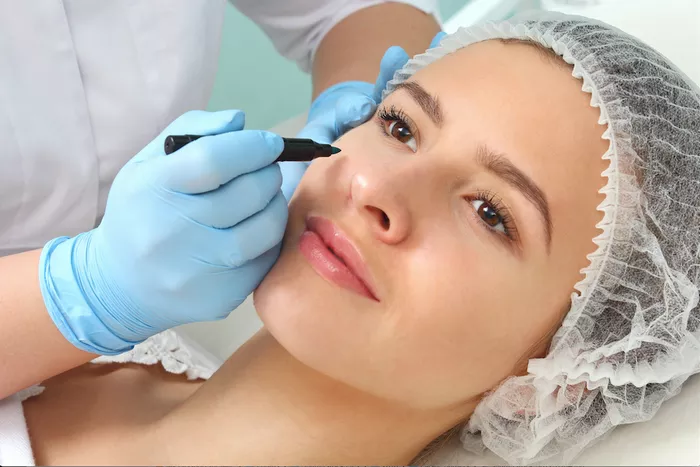Rhinoplasty, commonly known as a nose job, is a surgical procedure that involves reshaping the nose. This procedure can improve the appearance and function of the nose, but it also requires a period of recovery. During this time, patients may have questions about their oral care routine, including when they can brush their teeth after rhinoplasty. In this article, we will discuss the best practices for oral care after rhinoplasty and when patients can safely brush their teeth.
Why Oral Care is Important After Rhinoplasty
After rhinoplasty, the nose is sensitive and vulnerable to injury. Patients should take extra care when brushing their teeth to avoid any accidental trauma to the nose. Oral care is also important because bacteria can accumulate in the mouth and cause infection, which can delay the healing process.
It is essential to maintain good oral hygiene after rhinoplasty to reduce the risk of infection and promote healing. This includes brushing and flossing regularly and avoiding any activities that could cause trauma to the nose.
When Can I Brush My Teeth After Rhinoplasty?
Patients can typically brush their teeth after rhinoplasty within a day or two of the procedure. However, it is important to avoid any vigorous brushing or flossing that could cause trauma to the nose. Patients should also avoid using mouthwash for the first week after rhinoplasty, as this can irritate the nasal passages.
Patients should use a soft-bristled toothbrush and gentle brushing motions to avoid any accidental trauma to the nose. It is also important to avoid bending over the sink while brushing, as this can cause blood to rush to the head and increase the risk of bleeding.
Tips for Oral Care After Rhinoplasty
To ensure proper oral care after rhinoplasty, patients should follow these tips:
Use a soft-bristled toothbrush: A soft-bristled toothbrush is less likely to cause trauma to the nose and will be gentler on the gums.
Brush gently: Patients should avoid vigorous brushing or scrubbing motions, as this can cause trauma to the nose.
Avoid mouthwash: Patients should avoid using mouthwash for the first week after rhinoplasty, as this can irritate the nasal passages.
Rinse with saline solution: Patients can rinse their mouth with a saline solution to promote healing and reduce the risk of infection.
Avoid bending over the sink: Patients should avoid bending over the sink while brushing, as this can cause blood to rush to the head and increase the risk of bleeding.
Use a water flosser: Patients can use a water flosser to clean between their teeth without causing trauma to the nose.
Attend follow-up appointments: Patients should attend all follow-up appointments with their surgeon to ensure proper healing and to address any concerns or complications.
What to Expect During the Recovery Period
During the recovery period, patients may experience some swelling and bruising around the nose and eyes. This is normal and should subside within a few days. Patients may also experience some discomfort, but this can be managed with over-the-counter pain medication.
It is important to avoid any activities that could cause trauma to the nose for several weeks after rhinoplasty. This includes sports, exercise, and any activities that could cause the nose to be bumped or hit. Patients should also avoid blowing their nose for at least a week after rhinoplasty to prevent any damage to the healing tissues.
Additional Oral Care Tips for Rhinoplasty Patients
In addition to the tips mentioned above, there are several other oral care practices that rhinoplasty patients should follow to ensure proper healing and reduce the risk of complications.
Use a humidifier: A humidifier can help to keep the nasal passages moist, which can reduce the risk of infection and promote healing.
Avoid smoking: Smoking can delay the healing process and increase the risk of complications. Patients should avoid smoking for at least two weeks after rhinoplasty.
Avoid alcohol: Alcohol can increase swelling and delay the healing process. Patients should avoid alcohol for at least two weeks after rhinoplasty.
Use nasal saline spray: Nasal saline spray can help to keep the nasal passages moist and reduce the risk of infection.
Avoid spicy foods: Spicy foods can irritate the nasal passages and increase swelling. Patients should avoid spicy foods for at least a week after rhinoplasty.
Conclusion
Proper oral care is essential after rhinoplasty to reduce the risk of infection and promote healing. Patients can typically brush their teeth after rhinoplasty within a day or two of the procedure, but they should avoid any vigorous brushing or flossing that could cause trauma to the nose. Patients should also attend all follow-up appointments with their surgeon to ensure proper healing and to address any concerns or complications. With proper care and attention, patients can expect to see the full results of their rhinoplasty within several months after the procedure.

